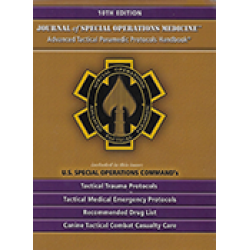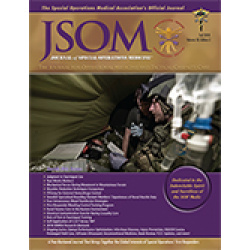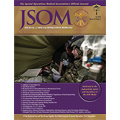Worldwide Case Reports Using the iTClamp for External Hemorrhage Control
McKee JL, Kirkpatrick AW, Bennett BL, Jenkins DA, Logsetty S, Holcomb JB 18(3). 39 - 44 (Journal Article)
Background: Historically, hemorrhage control strategies consisted of manual pressure, pressure dressings, gauze with or without hemostatic ingredients for wound packing, or the use of tourniquets. The iTClamp is a relatively new alternative to stop external bleeding. Methods: An anonymous survey was used to evaluate the outcomes of the iTClamp in worldwide cases of external bleeding. Results: A total of 245 evaluable applications were reported. The iTClamp stopped the bleeding in 81% (n = 198) of the cases. Inadequate bleeding control was documented in 8% (n = 20) and in the remaining 11% (n = 27), bleeding control was not reported. The top three anatomic body regions for iTClamp application were the scalp, 37% (n = 91); arm, 20% (n = 49); and leg, 19% (n = 46). In 26% of the reported cases (direct pressure [23% (n = 63)] and tourniquets [3% (n = 8]), other techniques were abandoned in favor of the iTClamp. Conversely, the iTClamp was abandoned in favor of direct pressure 11 times (4.4%) and abandoned in favor of a tourniquet three times (1%). Conclusion: The iTClamp appears to be a fast and reliable device to stop external bleeding. Because of its function and possible applications, it has potential to lessen the gap between and add to the present selection of devices for treatment of external bleeding.


 English
English 




